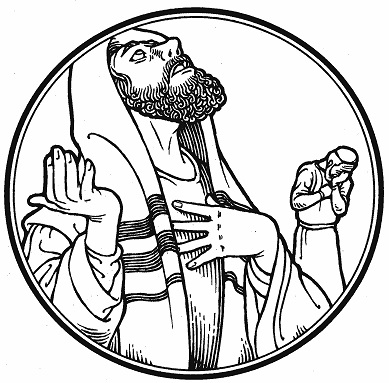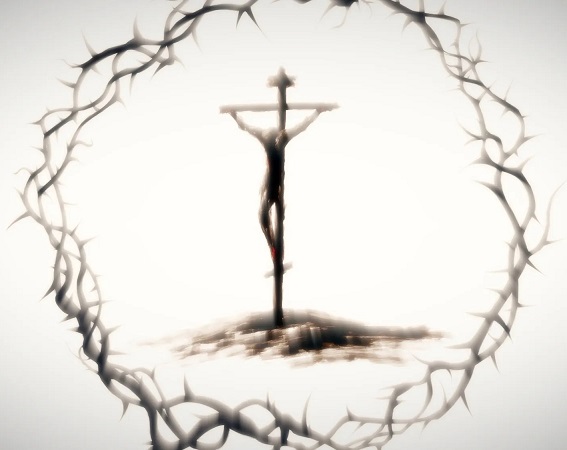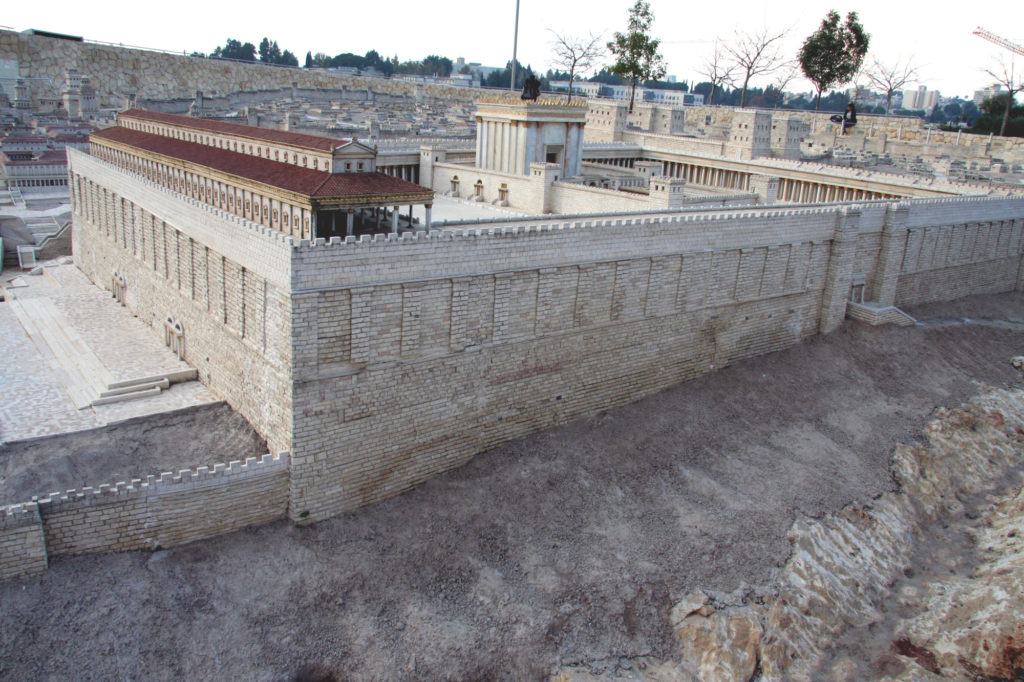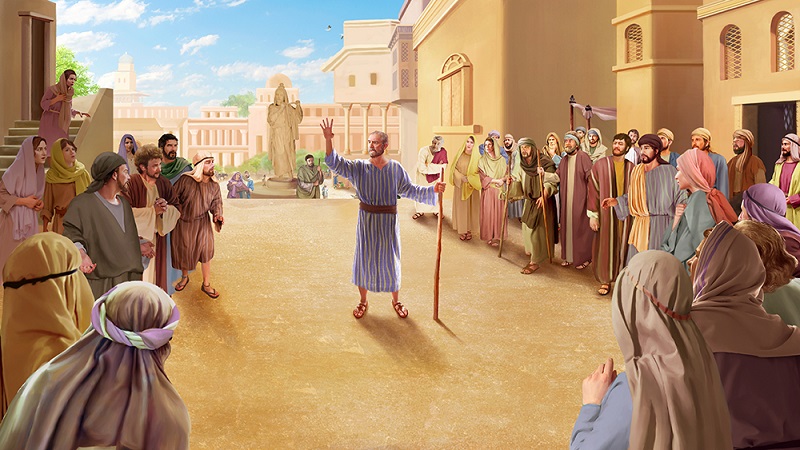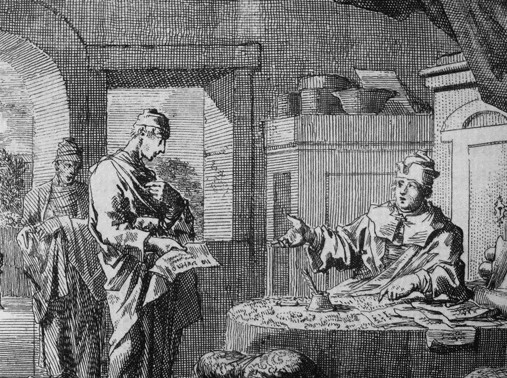Readings: Genesis 4:1-15 | Ephesians 2:1-10 | Luke 18:9-14
Text: Ephesians 2:1-10
This reading from Ephesians 2 is often a go-to passage for us as Reformation Christians. It beautifully covers the doctrines of original sin, election, God’s grace, faith, and even good works. It’s like the Swiss Army knife of Lutherans.

These words, so often repeated, can become numb on the ears and lose their impact with us. But today, I’m going to get back to the basics of our study of who God is and what He does (a theology) and of who we are and what we are capable of (an anthropology). Paul writes,
“And you were dead in the trespasses and sins 2 in which you once walked, following the course of this world…”
If you were to share this passage with most people today, they’d think this was bogus. After all, to say someone is dead is to say they’re not alive. Ask any biologist, and they’ll give you the seven characteristics of life: You have cells which are organized, you metabolize food into energy, you respond to your environment, your body is able to self-regulate its temperature (homeostasis), you are growing and developing, you (or at least your parents) can reproduce, and your cells evolve (that is, change over time). How can you say (to someone who has ears, a functioning brain, and a beating heart) that they are dead?
First, understand we’re not talking biologically—“You were dead in the trespasses and sins in which you once walked”; we’re talking about a person spiritually. And this is one of the first places that an unbeliever probably has a different understanding of what makes up a human being. The most common view today simply sees as the sum of their material parts—skin, bones, muscles, blood, other organs, neurons, and so forth. But something which we learn from God’s Word is that a human person is more than just the material stuff which can be seen and measured. Human beings also have a soul or spirit. (I often teach the catechism class to distinguish between animals, angels, and human beings in that animals have a body but no spirit, angels have a spirit but no body, and only humans are body and spirit.) And the soul, although it can’t be detected by our instruments, it very much impacts one’s life.
The soul is where the desire for transcendence is—”he has put eternity into man’s heart, yet so that he cannot find out what God has done from the beginning to the end.” (Eccl. 3:11) It’s also the major part of what the Bible calls man’s “heart” or “inner being.” Neuroscience has tried to figure out the source of consciousness and sentience, but so far have only been able to offer the energy that is picked up by MRI’s. The Word of God tells us the whole story about the human makeup. Body and soul belong together, and you can’t “just do something” with your body without your soul, any more than you can just “spiritually” do something apart from the body. This is also why death is such an awkward state, because it’s unnatural for body and soul to be divided, for “the dust returns to the earth as it was, and the spirit returns to God who gave it.” (Eccl. 12:7)

With this anthropology, this understanding of a human being, now we’re able to move forward: “following the prince of the power of the air, the spirit that is now at work in the sons of disobedience— 3 among whom we all once lived in the passions of our flesh, carrying out the desires of the body and the mind, and were by nature children of wrath, like the rest of mankind.”
While there are the seven characteristics of biological life, there are some characteristics that help us determine if a person is spiritually alive. The living soul assents to the Word of God, saying things like “The just decrees of the Lord are true…More to be desired are they than gold, even much fine gold” and “Let it be to me according to your Word” (Psalm 19:9-10; Luke 1:38) The living soul feeds on the Word of God and growth comes from it, “Man does not live by bread alone, but by every word that comes from the mouth of God” and “Like newborn infants [who] long for the pure spiritual milk [of God’s Word], that by it you may grow up into salvation” (Deut. 8:3; 1 Pet. 2:2) Lastly, the living soul gives heed and obeys what its Creator commands: “I delight to do your will, O my God; your law is within my heart” and “For as the body apart from the spirit is dead, so also faith apart from works is dead. (James 2:26)
The absence of these things is what one looks for to know if they have spiritual life or not. This is what happened when sin came into the world. The Lord God had warned that “in the day that you eat of it you shall surely die” (Gen. 2:17). It wasn’t that Adam and Eve dropped physically dead there on the spot. In their quest to know good and evil, they became intimately acquainted with spiritual death (which preceded physical death). And spiritual death was handed down to all their descendants by natural birth. Since then, all fathers, who are sons of Adam himself, procreate children with sin and death. As Gregory Schulz explains in “The Problem of Suffering” about the death of his old children: “There is nothing more terrifying than seeing the wages of sin present in your own child. The terror lies in knowing…that I as a father am the medium for the sin that brings my child’s death.”[1]
This spiritual death which we each have from our fathers, requires the Word of God to diagnose. That’s because every self-evaluation tool—whether religious or philosophical—misses the full scope of the damage. It may touch on symptoms, but it can’t diagnose the root cause. There are three main effects of what’s called original sin (not that Adam and Eve’s guilt is charged against us, but it refers to the spiritual state we naturally are in). They are concupiscence, blindness, and rebellion.
Concupiscence is a term coined by Aurelius Augustine, the 5th century bishop of Hippo (who for his part had quite the tour of philosophies and smorgasbord of worldly delights). The Lutheran confessions explain, “Concupiscence is not only a corruption of physical qualities, but also, in the higher powers, a vicious turning to fleshly things” (Apology II 25). Augustine’s own words are quite vivid about it: “Out of the dark concupiscence of the flesh and the effervescence of youth exhalations came forth which obscured and overcast my heart, so that I was unable to discern pure affection from unholy desire. Both boiled confusedly within me, and dragged away my unstable youth into the rough places of unchaste desires, and plunged me into a gulf of infamy.” (Confessions, Book II, 2) That’s how it manifests itself for sexual desire, but concupiscence is a bent which all people naturally have away from the will of their Creator: “For the mind that is set on the flesh is hostile to God, for it does not submit to God’s law; indeed, it cannot” (Rom. 8:7) and as Cain experienced in the Old Testament lesson, in spite of the clear and reasonable warning from the Lord, he was unable to rule over sin (Gen. 4:5-7)

Original sin also manifests in a lack of senses when it comes to the things of God. It’s a blindness that can look at the clear Word of God or the proof of that Word, and not perceive, which was exhibited in the Pharisees in John 9:35-41 who claimed to see God’s will clearly when Jesus healed the blind man. It’s a deafness to the hearing the truth which condemns man’s sin and offers salvation only through Jesus Christ, shown when the mob stopped their ears and rushed forward to stone Stephen in Acts 7:54-60. It also makes a dulled conscience that can’t feel the pricking it ought to:
“God gave them up to a debased mind to do what ought not to be done. 29 They were filled with all manner of unrighteousness, evil, covetousness, malice. They are full of envy, murder, strife, deceit, maliciousness. They are gossips, 30 slanderers, haters of God, insolent, haughty, boastful, inventors of evil, disobedient to parents, 31 foolish, faithless, heartless, ruthless. 32 Though they know God’s righteous decree that those who practice such things deserve to die, they not only do them but give approval to those who practice them.” (Rom. 1:28-32)
Finally, and maybe most familiar, is that original sin shows its ugliness in rebellion against God’s will and insists on its own way. That’s the fruit of original sin that often plagues Christians. Yes, it’s a weakness against the temptation to do the wrong thing, but it’s sin in us that actually likes doing it. It’s fun; it’s exciting; and to be honest I’m kind of glad to get away with it. Thankfully the Holy Spirit wrote this insight for us in Romans 7: “I do not understand my own actions. For I do not do what I want, but I do the very thing I hate… I know that nothing good dwells in me, that is, in my flesh. For I have the desire to do what is right, but not the ability to carry it out. 19 For I do not do the good I want, but the evil I do not want is what I keep on doing.” (Rom. 7:15-19)
Now, to be clear, even with original sin and all the damage it does to human spiritual life, this does not mean human beings are completely dysfunctional. There is a lot of moral good we do, believer or not. And that helps to show the distinction (not disconnection) between our powers of reason, strength, and compassion, and the part of us which is created for a right knowledge and fellowship with our Creator. God made people in His image and likeness (Gen. 1:26-27)—with intellect, emotions, reasoning, and words. People still know how to live together, to love, to heal diseases, to be curious about the universe, and so on. Even if those things are marred, and only partly understood from their original potential, God still allows us to enjoy them.

But it’s not on the basis of this moral good that a sinful human being can be restored to fellowship with God. This God, who is known to varying degrees by each person, truly exists and comes to our rescue: “4 But God, being rich in mercy, because of the great love with which he loved us, 5 even when we were dead in our trespasses, made us alive together with Christ—by grace you have been saved” This is what God is saving us from. It’s more than moral deficiencies, more than a weak mortal body, more than the abuses and divisions we see among people. In Twelve Step recovery, I learned to “Make a searching and fearless moral inventory of [myself]” and to “have God remove all these defects of character”[2] It wasn’t until I heard the Word of God in March 2006, that I realized I had a far bigger problem that character defects and sketchy morals. This is what God does: He doesn’t just pick us up and rehab us a bit; He takes us and resuscitates us from death. That’s why it’s called His “rich mercy” and “great love.” It’s the very model of what those things are, and it goes beyond anything we’ve ever seen demonstrated among men.
6 and raised us up with him and seated us with him in the heavenly places in Christ Jesus, 7 so that in the coming ages he might show the immeasurable riches of his grace in kindness toward us in Christ Jesus. 8 For by grace you have been saved through faith. And this is not your own doing; it is the gift of God, 9 not a result of works, so that no one may boast. 10 For we are his workmanship, created in Christ Jesus for good works, which God prepared beforehand, that we should walk in them.
Sadly, the Christian religion is often reduced to “I get to go to heaven when I die.” If Christ is no more than a cheerleader urging us on from the fictitious “pearly gates,” then we are in a sorry state. It’s true, because God has saved us, dead in sin as we were, and made us alive with Christ, that we do have a heavenly hope. In the coming ages, we will see and be filled with joy at what God has prepared for His children by grace through faith. Yet, for His children, God is very present. Each day of this life, a Christian can rejoice in what God has done, plus how He continues to be gracious and full of mercy as we navigate darkened understanding, temptation, and the pangs of death.
As redeemed children of God, we are already experiencing that restoration. With the renewal of our hearts by the Holy Spirit, we gladly hear His Word and see there’s more to life than “being saved.” God created our first parents to work, to have dominion over creation, and to serve one another in various callings. With the blindness and rebellion of sin held at bay, we can glimpse what our Creator has made us to truly be. A far cry from following the course of this world, satisfying its selfish appetites, we can learn from the Commandments just what it means to love the Lord our God with all our heart and our neighbor as ourselves. We are created for service to others, for us in body and soul to minister to them, body and soul. And this is where we will find the truest fulfillment and satisfaction this side of eternity. The “prince of the power of the air,” the Devil, and the sinful flesh will make this difficult at times, but we know the God who created, redeems us, and grants us to share in the resurrection spiritually now and bodily at the Last. If He has the power to save us from the depravity of sin and death, should we doubt that He can save us through the years of this life? In the Name + of Jesus. Amen.

[1] Rev. Dr. Gregory Schulz, “The Problem of Suffering” Chapter 2 section, “The Cause of Death”
[2] “Twelve Steps and Twelve Traditions” pp. 6-7


